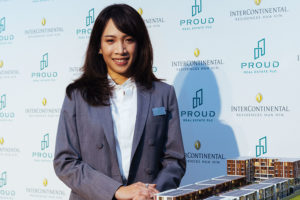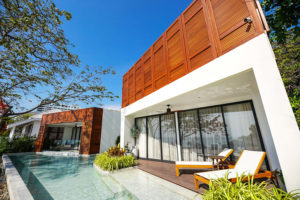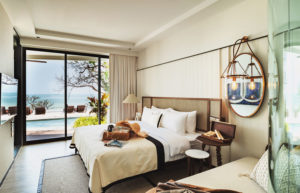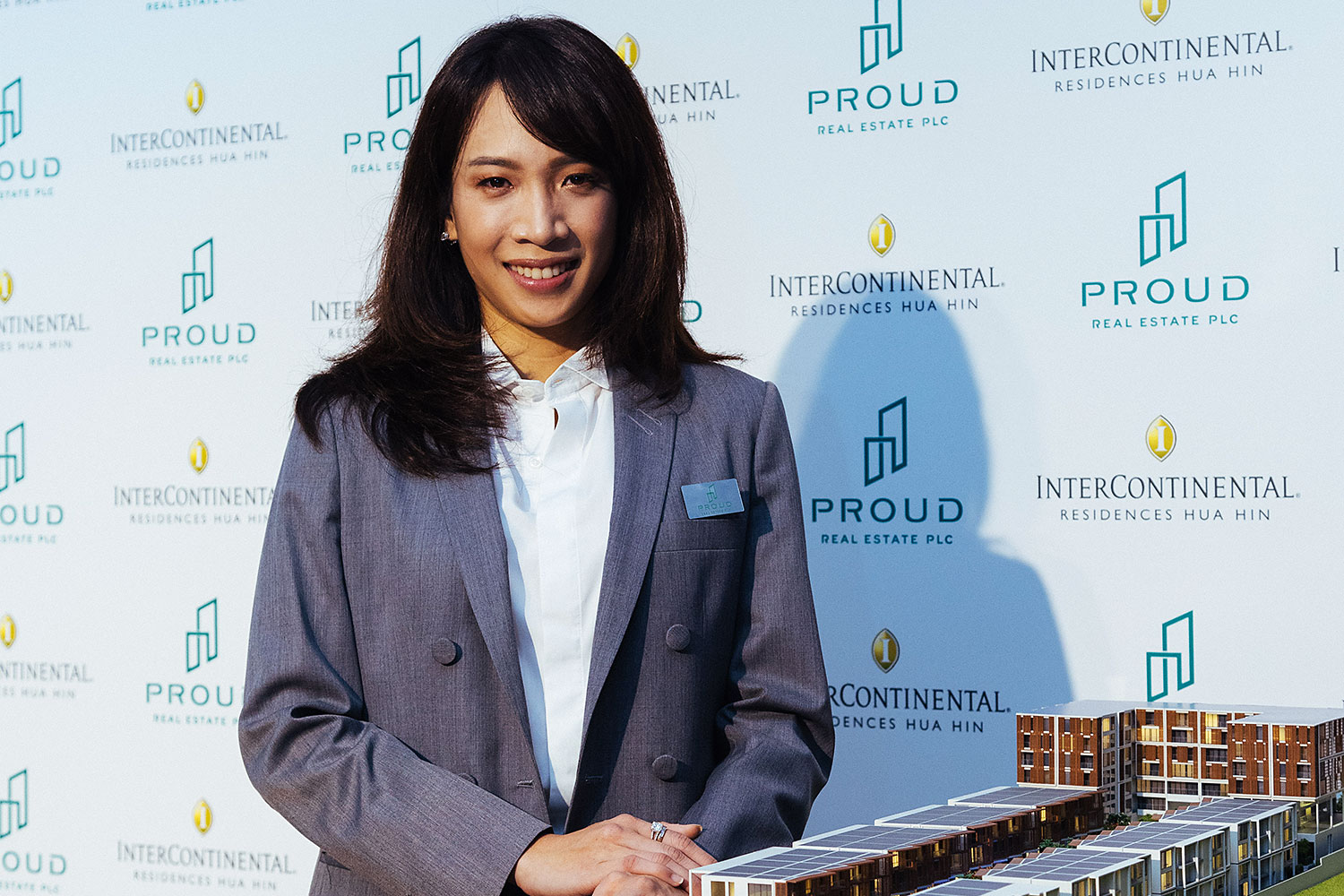
Covid-19 pandemic in Thailand will accelerate certain property trends according to MAI-listed developer Proud Real Estate Plc
Homebuyers are focusing on health, convenience and space as three generations live together
The Covid-19 pandemic will accelerate certain property trends, with homebuyers becoming more attentive to health, well-being, convenience and space, according to MAI-listed developer Proud Real Estate Plc.
“During the lockdown, customer interest in resort homes rose as many wanted to escape the jammed city. Resort home projects with fewer units and those designed for real living will match their preference.” — Proudputh Liptapanlop, Executive director, Proud Real Estate
Many people talk about new normal behaviours in the post-virus era, but these are short-term adjustments, said Proudputh Liptapanlop, the company’s executive director.
“The more important phenomena are megatrends that have been gradually emerging for a while, but the virus will push them to the fore quickly,” she said.
One of them is an ageing society. In Thailand, people age 60 and older are projected to account for 20% of the total population by 2038. This group of people will be active retirees, and 35% of them will remain working.
“These retirees who need to work from home or work 3-4 days a week will be concerned about healthcare during their semi-active retirement,” said Ms Proudputh.
Proximity to healthcare services will be a primary consideration, followed by facilities and services that meet their needs and are unique. They will also want better environmental surroundings.
Generation Gap
Populations are growing for Gen X and millennial segments, and in the next five years they will be a key driver of the economy in terms of employees and purchasing power.
“A central question is how to do a residential project for three generations living together. Baby boomers, Gen X and millennials all have their own needs,” she said.

Baby boomers, or those aged 56 and above, work hard and want a secure life, while Gen X, those aged between 39-55, want a work-life balance, said Ms Proudputh.
Millennials were born between 1981-1995 and are liberal, flexible and tech-savvy, she said.
“As three generations will spend more time at home, it should be more than just a house. These properties should have flexibility, hassle-free services, green spaces and private facilities that can meet the diverse needs of different generations,” said Ms Proudputh.
Away from it all
With work from home a new option, many people do not want to live in the city, choosing a less crowded environment. Their first home will not be in Bangkok, she said.
“During the lockdown, customer interest in resort homes rose as many wanted to escape the jammed city,” said Ms Proudputh.
“Resort home projects with fewer units and those designed for real living will match their preference.”

As the Covid-19 outbreak will cause a slump and dampen domestic consumption, the government needs to boost the economy with investment in megaprojects, such as infrastructure, she said.
“We will see an acceleration in a lot of transport projects like high-speed rails and motorways, as well as projects that can help boost the tourism industry, which is a key driver of the national economy,” said Ms Proudputh.
“Major resort destinations will capitalise on government spending.”
She cited Hua Hin as a top destination that ticks all the boxes: convenient transport; motorway projects under construction; world-class hospitals; and various types of restaurants.
As lockdown measures are partially eased, Hua Hin should become more popular as Thais are prevented from travelling abroad and turn to domestic destinations, said Ms Proudputh.
Last year the number of Thai outbound travellers was very large, totalling 12 million.
“During the lockdown, resort homes became attractive as customers wanted to escape the city. Our products met their need for a tranquil environment with fewer units designed for real living,” she said.
Proud Real Estate launched InterContinental Residences Hua Hin, a luxury branded residential project worth 3.5 billion baht, in late February. It will be located on a 7.5-rai beachfront plot on Phetkasem Road in central Hua Hin.

Despite a short sales period before the outbreak hit the country, the project has posted 1 billion baht in sales to date, of which 800 million was recorded in February and March.
With a resort approach to design, Ms Proudputh said the project is a low-density development with only 238 units, with 3-13 units per floor on four eight-storey buildings and a seven-storey tower. More than 70% of the total area is green space.
Units start from 45 square metres for a one-bedroom unit that will be large enough to live in 24 hours a day, she said.
“Many people visited Hua Hin during the lockdown and they value condos in resort destinations because hotels that were perceived as more convenient were temporarily closed,” said Ms Proudputh.
Pasu Liptapanlop, the company’s executive director, said the launch of the such a big project was rare in February.
The conversion rate from visitors to customers was very high at 40-50%, up from the usual 10-20% pre-outbreak.
“Those visiting our project sites wanted to buy. They studied the project before visiting and made a decision,” said Mr Pasu.
Proud Real Estate already adjusted some features at the project to be more flexible, such as semi-private outdoor work pods for those working from home.
Around the pools at the project, the company added cabana chairs for two people with curtains for privacy, and charging stations for working. In the library, a teleconference room with a divider partition was added.
Services from InterContinental Hotel Group — in-room dining, shopping service, five-star hotel cleaning and safety standards — will be provided for convenience and a pleasant stay.
Proud Real Estate is also developing a mobile application to facilitate customers during their stay that it plans to launch by the end of the year.
Features will include Bluetooth access control for doors and elevators.
There will also be smart cameras or CCTV with temperature detection and records for entry and exit.
“After the coronavirus situation is under control and we have zero new patients for several consecutive days, the two sectors related to property that will obviously recover the fastest will be undervalued sites and discretionary spending,” said Mr Pasu.
While the Hua Hin project is a discretionary outlay for many, Focus Ploenchit condo on Sukhumvit Soi 2, with units ready to transfer, could be described as a value laggard, with a price per sq m of 130,000 baht, compared with the market in that area at more than 170,000 baht, he said.
“Our two products have a value proposition,” said Mr Pasu.
“The location is prime and the content is based on our experience in the hospitality business.”
Source: https://www.bangkokpost.com/business/1924280/virus-spurs-property-megatrends



